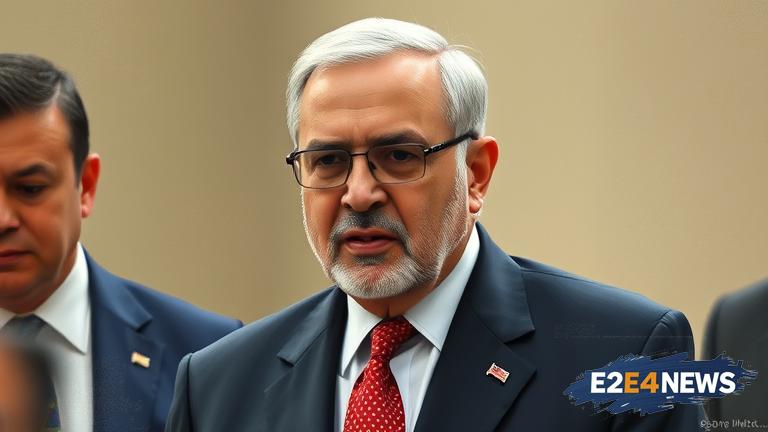Lebanon’s former central bank chief, Riad Salameh, has been released on $20 million bail, a move that has sparked controversy and raised questions about the country’s financial future. Salameh, who served as the governor of the Central Bank of Lebanon from 1993 to 2023, was arrested in July 2023 on charges of embezzlement and money laundering. The arrest was seen as a significant step towards addressing the country’s financial crisis, which has been exacerbated by corruption and mismanagement. However, Salameh’s release on bail has been met with criticism from many Lebanese citizens, who feel that the move is a sign of the country’s continued lack of accountability. The bail amount, which is one of the largest in Lebanese history, has also raised eyebrows, with many questioning how Salameh was able to secure such a large sum. The release has also sparked concerns about the potential for Salameh to flee the country, given his significant wealth and international connections. Despite these concerns, the Lebanese judiciary has maintained that Salameh’s release is a necessary step in the legal process, and that he will still face trial for the charges against him. The case against Salameh is complex and involves allegations of embezzlement, money laundering, and fraud. Prosecutors allege that Salameh used his position to enrich himself and his associates, and that he played a significant role in the country’s financial crisis. The crisis, which began in 2019, has seen the value of the Lebanese pound plummet, and has left many citizens struggling to access basic necessities like food and medicine. The International Monetary Fund (IMF) has estimated that the crisis has resulted in losses of over $70 billion, making it one of the largest financial crises in recent history. The Lebanese government has been working to implement reforms and secure international aid, but progress has been slow. The release of Salameh has also raised questions about the role of the international community in addressing the crisis. Many have called for greater accountability and transparency, and for the international community to play a more active role in supporting the Lebanese people. The European Union, in particular, has been criticized for its handling of the crisis, with some arguing that it has not done enough to support the Lebanese government. The United States has also been involved in efforts to address the crisis, and has provided significant aid to the country. However, the US has also been critical of the Lebanese government’s handling of the crisis, and has called for greater reforms. The release of Salameh is likely to be a major test for the Lebanese judiciary, and will be closely watched by the international community. It remains to be seen whether Salameh will ultimately be held accountable for his actions, and whether the country will be able to move forward from the crisis. The case has also sparked a wider debate about corruption and accountability in Lebanon, with many calling for greater transparency and reform. The Lebanese people are eagerly awaiting the outcome of the trial, and are hoping that it will bring some measure of justice and accountability to the country. The international community is also watching the case closely, and is hoping that it will be a step towards greater stability and prosperity in the region. In conclusion, the release of Riad Salameh on $20 million bail is a significant development in the ongoing financial crisis in Lebanon. While it is a necessary step in the legal process, it has also sparked controversy and raised questions about the country’s financial future. The case against Salameh is complex and involves allegations of embezzlement, money laundering, and fraud. The international community is watching the case closely, and is hoping that it will be a step towards greater stability and prosperity in the region.
